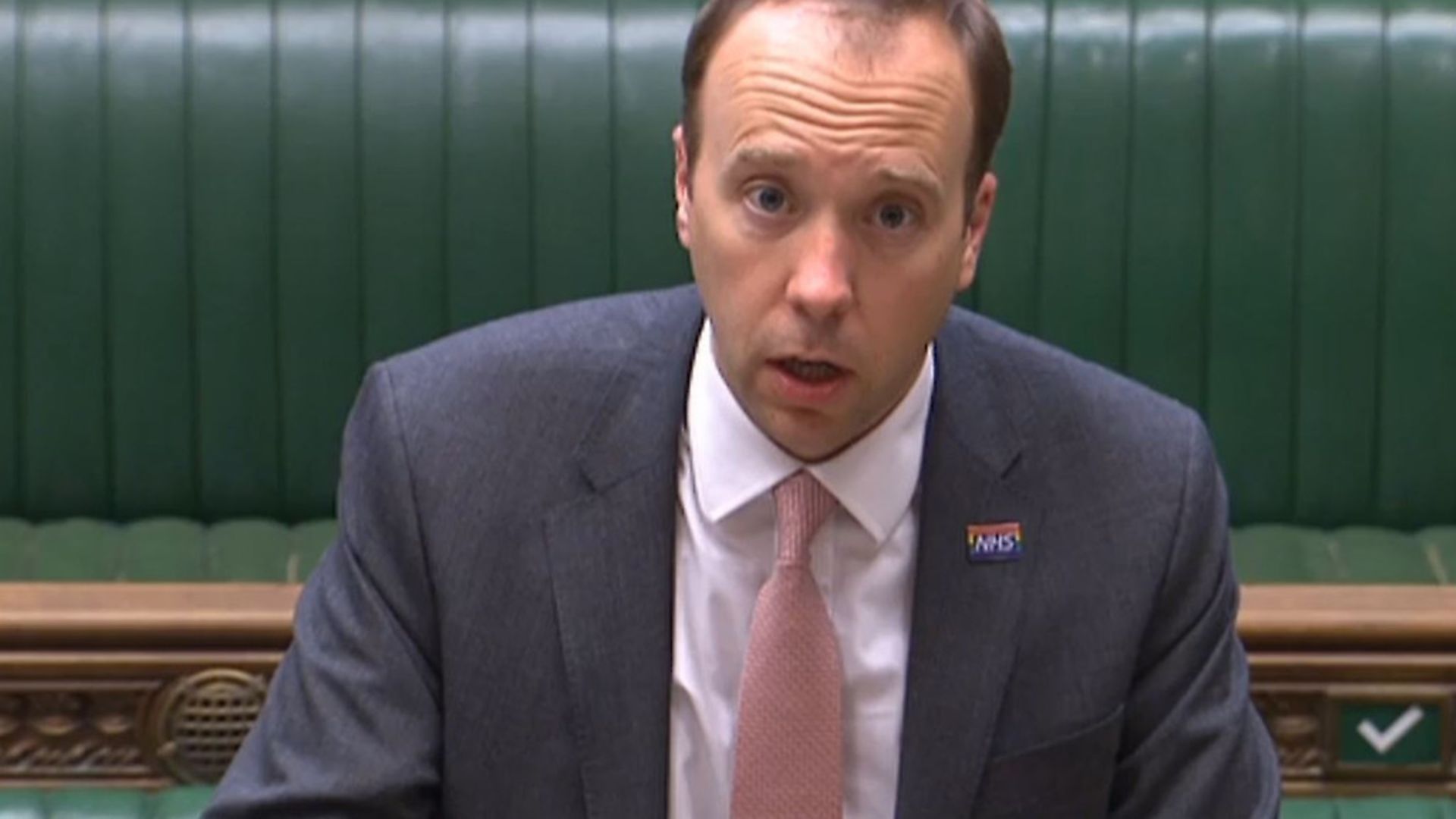
Matt Hancock has promised to work more closely with MPs on new coronavirus restrictions.
The health secretary told the Commons on Wednesday: “Today I can confirm to the House (of Commons) that for significant national measures with effect in the whole of England or UK-wide we will consult parliament, wherever possible we will hold votes before such regulations come into force.
“But of course responding to the virus means that the government must act at speed when required and we cannot hold up urgent regulations which are needed to control the virus and save lives.”
Hancock’s announcement comes after a growing number of Tory and crossbench MPs threatened to push through an amendment requiring the government to seek the consent of parliament before imposing new Covid regulations.
Around 50 MPs supported the motion, known as the Brady amendment, named after the chair of the Tory backbench 1922 Committee.
On Monday, former European Research Group chair Steve Baker argued that MPs should be given a vote on legislation that threatened to take away people’s rights before they were imposed.
Speaking on Sophy Ridge on Sunday, Baker said: “We’re trying to put this right. And actually, it’s a very modest proposal that MPs should vote on law before it comes into effect and takes away people’s liberties.”
Earlier on Wednesday, Commons speaker Sir Lindsay Hoyle said the government had “total disregard” for parliament with its handling of Covid-19 regulations while rejecting calls for a vote on the Brady amendment.
He added: “The way in which the government has exercised its power to make secondary legislation during this crisis has been totally unsatisfactory.
“All too often important statutory instruments have been published a matter of hours before they come into force and some explanations as to why important measures have come into effect before they can be laid before this house has been unconvincing and shows a total disregard for the House.”
He added: “When I became Speaker I made it clear that I would take decisions on matters relating to procedures guided by professional advice.
“I have concluded on the basis of advice that I received that any amendment to the motion before the House risks giving rise to uncertainty about the decision the House has taken.
“This then risks decisions that are rightly the responsivity of parliament ultimately being determined by the courts.”








